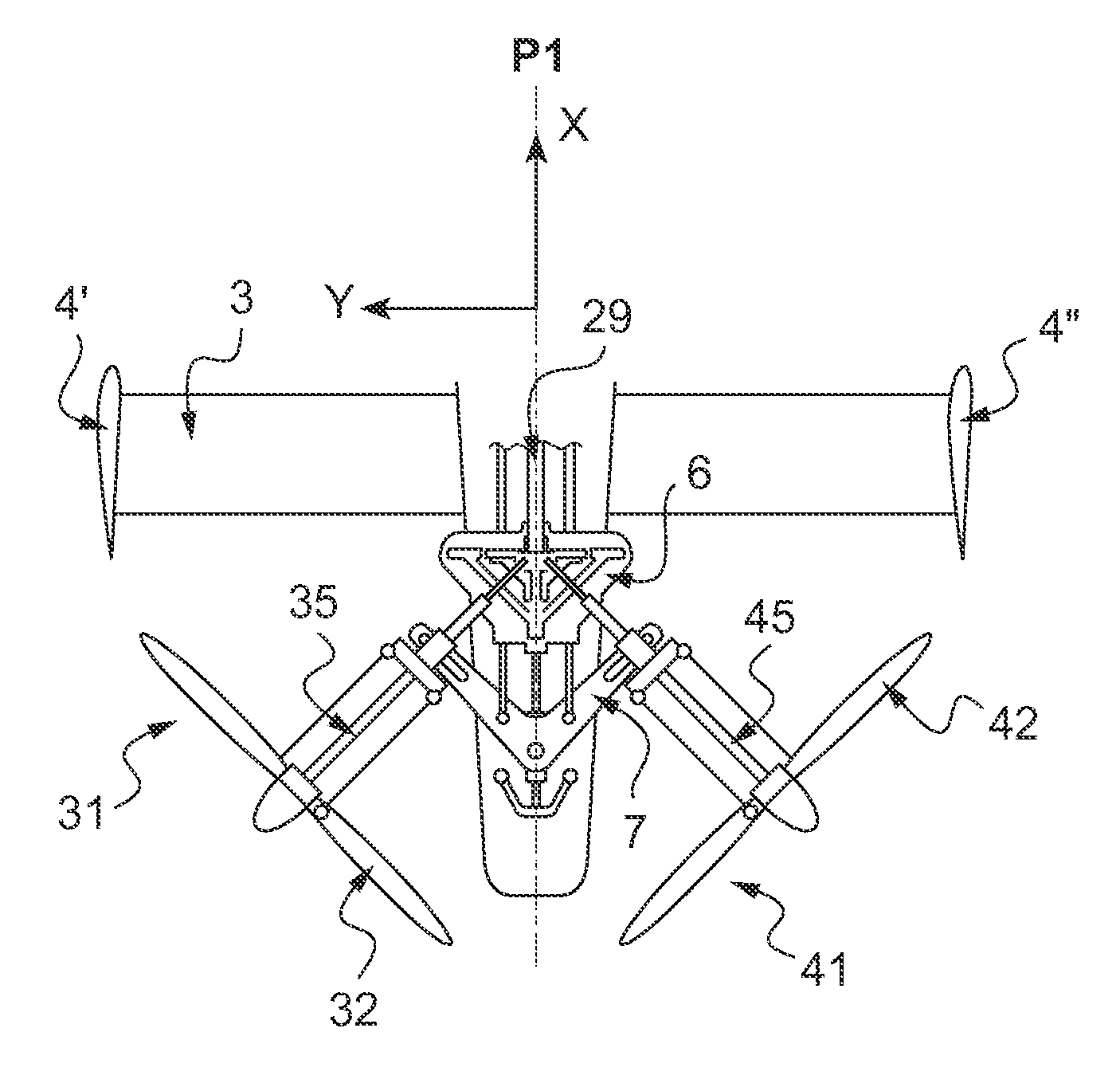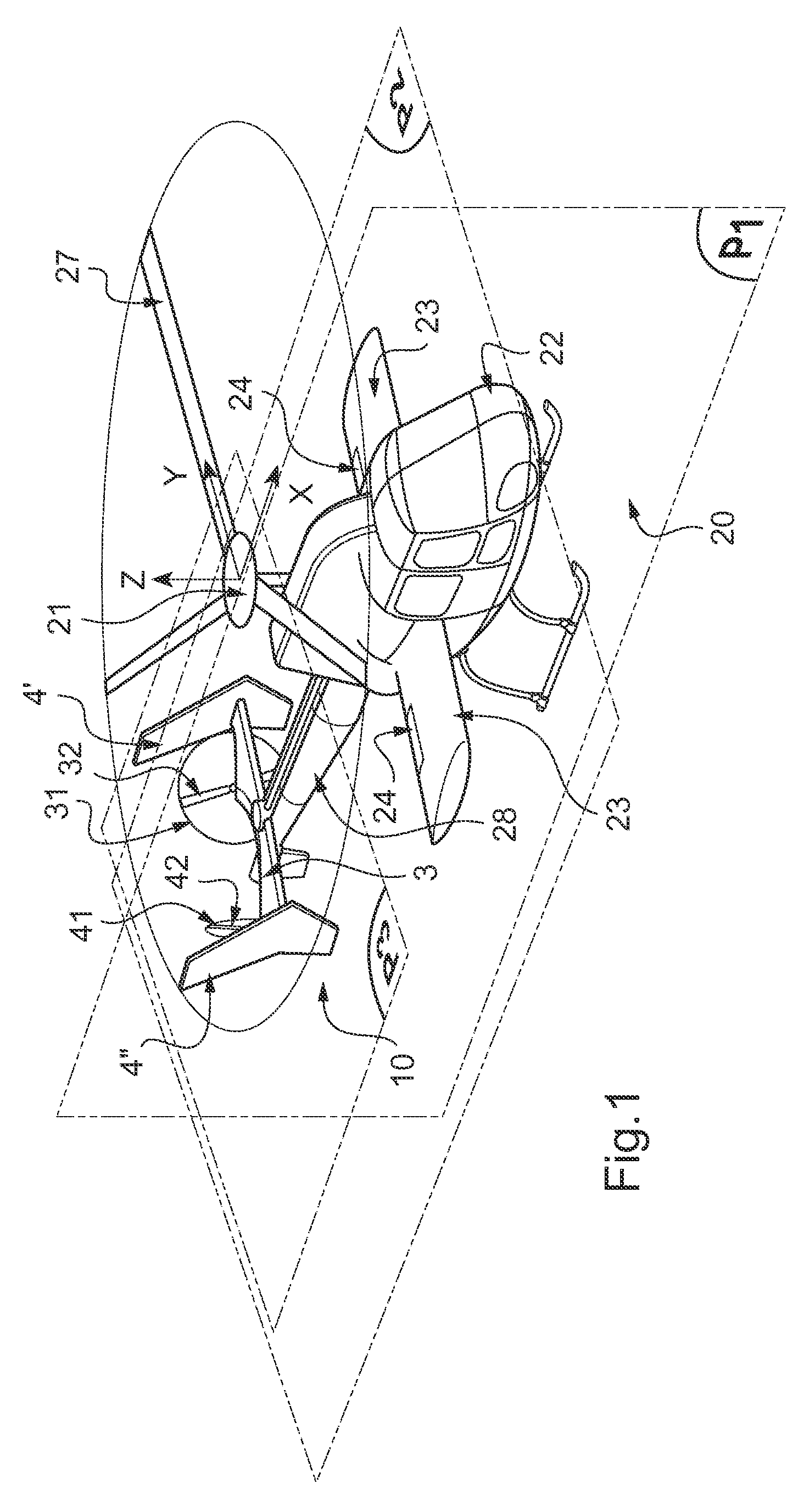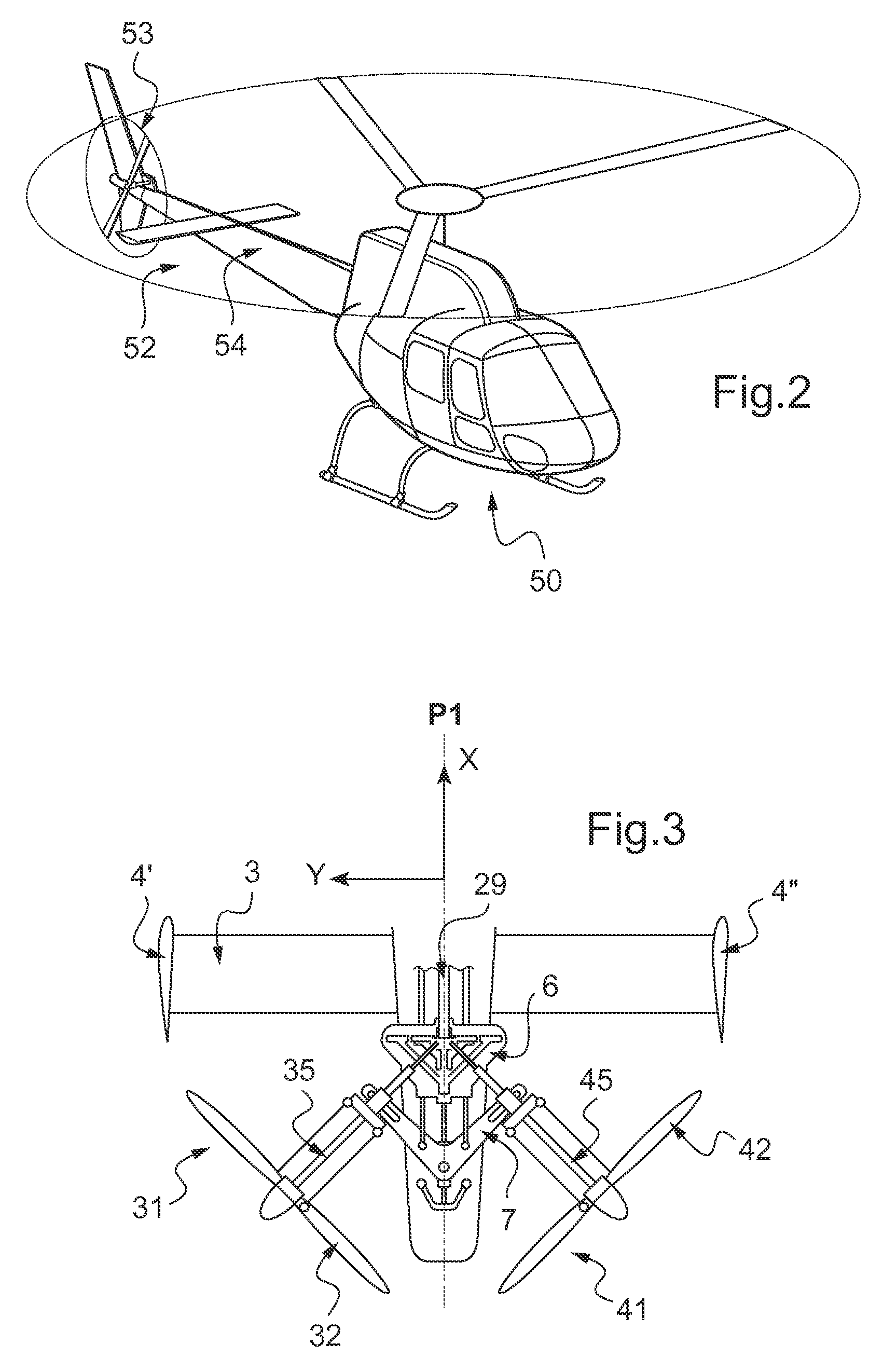Anti-torque device with longitudinal thrust for a rotorcraft
a technology of anti-torque device and rotorcraft, which is applied in the direction of rotorcraft, aircraft, vehicles, etc., can solve the problems of significant loss of aerodynamic efficiency in steering the air stream in this way, and achieve the effects of simplifying the transformation, reducing the cost of assembling the tail assembly on the airframe, and reducing the cost of maintenan
- Summary
- Abstract
- Description
- Claims
- Application Information
AI Technical Summary
Benefits of technology
Problems solved by technology
Method used
Image
Examples
Embodiment Construction
[0125]Firstly, it should be observed that three directions X, Y, and Z are shown in FIGS. 1, 3, and 7 and they form a rectangular coordinate system.
[0126]The first direction X is said to be longitudinal. It extends from front to rear, i.e. from the front tip of the helicopter airframe to the rear end of the tail boom of said helicopter. The term “longitudinal” relates to any direction parallel to the first direction X.
[0127]The second direction Y is said to be transverse. It extends from right to left. The term “transverse” relates to any direction parallel to the second direction Y.
[0128]Finally, the third direction Z is said to be in elevation. It extends upwards. The term “in elevation” relates to any direction parallel to the third direction Z.
[0129]It should also be observed that three particular planes P1, P2, and P3 are shown in FIGS. 1 and 3.
[0130]The first plane P1 is an anteroposterior plane of the helicopter 20, extending from the front to the rear of said helicopter 20. ...
PUM
 Login to View More
Login to View More Abstract
Description
Claims
Application Information
 Login to View More
Login to View More - R&D
- Intellectual Property
- Life Sciences
- Materials
- Tech Scout
- Unparalleled Data Quality
- Higher Quality Content
- 60% Fewer Hallucinations
Browse by: Latest US Patents, China's latest patents, Technical Efficacy Thesaurus, Application Domain, Technology Topic, Popular Technical Reports.
© 2025 PatSnap. All rights reserved.Legal|Privacy policy|Modern Slavery Act Transparency Statement|Sitemap|About US| Contact US: help@patsnap.com



